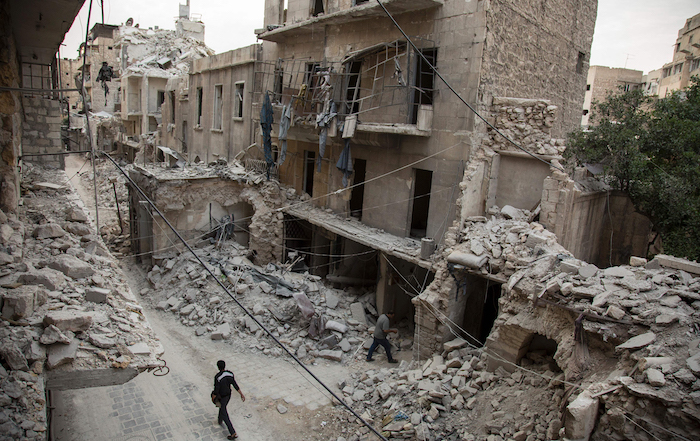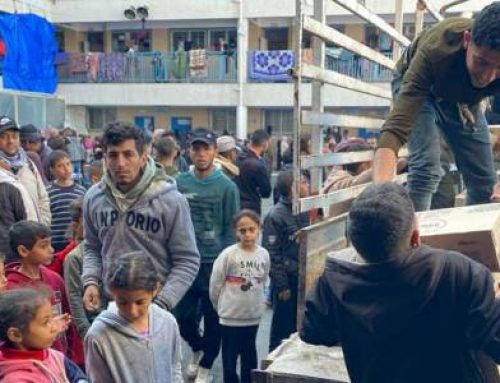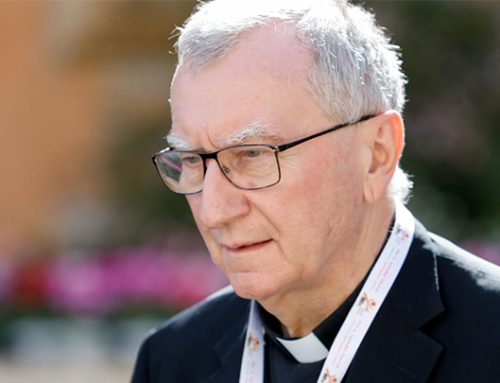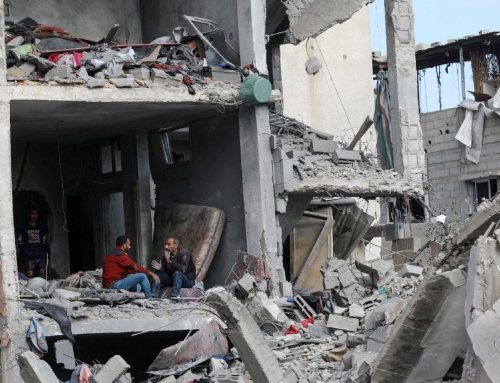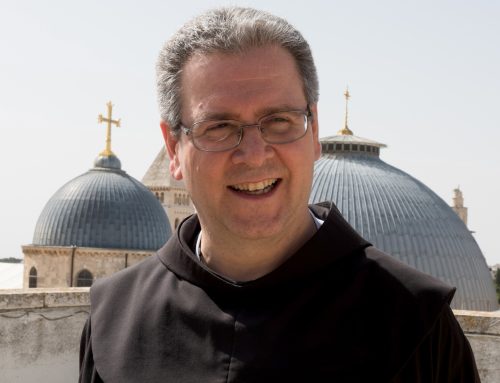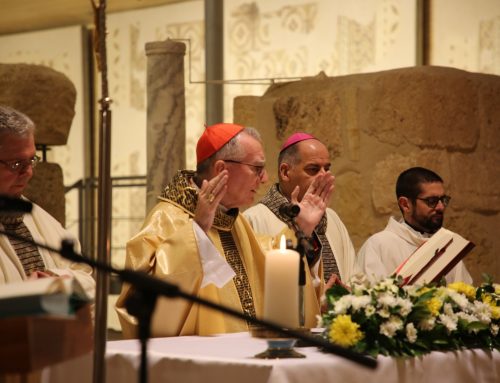In early May, Al-Monitor reported that the Kurdish National Council (KNC) and the Kurdish Democratic Union Party (PYD) in northeastern Syria began US-sponsored reconciliation talks in the hope they could join the UN-sponsored peace process related to Syria. The KNC is Kurdistan Democratic Party (KDP) affiliated body and was formed under the party leader, Masoud Barzani’s, sponsorship. The backing of US is seen as an effort to appease Turkey’s national security concerns with regards PYD’s role in Syria.
According to recent reports in the Kurdish media this talks progressed, confirming earlier indications that the “US supports intra-Kurdish dialogue talks recently held by Kurdish parties in Syria.” Tensions evidently existed till recent times between the two Syrian Kurdish groups in Syria since the outbreak of the Syrian conflict in 2011, with the PYD playing the key role in the establishment of the self-administration in northeastern Syria. Turkey has always seen the PYD as a spinoff of the PKK and initiated a military incursion into Syria late 2019 to counter further efforts for a possible Kurdish autonomy along the Turkish border in northern Syria. KNC has been an umbrella organization of several Kurdish parties and has been represented in the Syrian opposition.
The recent re-approachment of the Kurdish groups has its implication for the political dynamic of northern Syria, where Assyrians live, particularly in the al-Hasakah governorate. On political and ethnic level, Assyrians are organized in three political parties, the Assyrian Democratic Organization (ADO), the Syriac Union Party (SUP), and the Assyrian Democratic Party. In addition, a community security-guard group (named Sutoro) is maintained, while independent from the individual churches of the community in the region (Syriac-Orthodox, Syriac-Catholic, Chaldean, Assyriac Church of the East) several cross-denominationals civic committees have been established and are engaged in the cities and towns of the governorate as well.
Related: Timeline of ISIS in Iraq
Related: Attacks on Assyrians in Syria By ISIS and Other Muslim Groups
The three Assyrian political parties are committed to different fronts in the Syrian conflict: while the ADO is part of the larger Syrian Coalition since its inception, the SUP collaborates with the Kurdish self-administration led by the PYD, maintains the Sootoro security police group. Its military arm became a part of the Syrian Democratic Forces (SDF). The Assyrian Democratic Party, to some extent, collaborates with the PYD as well as maintaing a small protection group in the Hasakah and Khabour villages.
In order to get a first hand anaylsis of the sitituation in northern Syria after the Turkish incursion and to understand the political implications of the inner-Kurdish approach for Syria’s northeast region and what it means for the Assyrians, I had the opportunity to interview Mr. Sait Yıldiz, the head of the Swedish Section of the Assyrian Democratic Organization (ADO).
As a political party, the Assyrian Democratic Organization was founded back in 1957, striving for the establishment of a secular, pluralistic and democratic government in Syria with a constitution that recognizes equal rights for all of its ethnic components. According to the ADO’s vision, such a constitution should embody a universal Syrian national identity, reflecting the national, religious, and cultural diversity within a unified country. The organization states that it pursues non-violent, peaceful, and democratic struggle in its quest for change, while renouncing violence and extremism, and believes that the only viable solution for the Syrian crisis is a political solution.
As an ethnic organization, the ADO has been a founding member of the Syrian National Council (SNC) and part of the Syrian opposition since its inception; it signed the so-called Damascus Declaration in October 2005, which aimed to unify the Syrian opposition demanding reforms and democracy. The declaration criticized the Syrian government prior to the uprising in 2011 as “authoritarian, totalitarian, and cliquish,” and called for a “peaceful and gradual,” reform “founded on accord, and based on dialogue and recognition of the other.”
Gabriel Moushe, the ADO’s former president was arrested by the Syrian regime in 2013 and held in prison in Damascus for two and half years. Currently, Abdelahat Astepho represents the ADO in the Syrian National Coalition of the Syrian Revolution and Opposition Forces and is a member of the Political Committee.
Mr. Yıldiz holds an MA in political science from the University of Uppsala and sits for the Swedish Left Party in Södertälje’s city council. The interview was conducted in the modern Assyrian-Aramaic (Surayt) language.
Abdulmesih BarAbraham (AB): Could you please introduce yourself?
Sait Yıldiz (SY): I was born in 1965 in Anhel, Turabdin. I received my primary school and Assyrian education in Anhel and Midyat. In 1980 I travelled to Switzerland and applied for asylum in Germany a month later. While in the city of Augsburg, where I lived for three years, I came into contact with the Assyrian National Movement and participated in its youth activities. I settled in Sweden in August 1983.
Between 1986 and 1991, I became the chairman of the Assyrian Cultural Association in Botkyrka, Stockholm. In 1990, when I served as a member of the board of directors of the Assyrian Youth Committee of the Assyrian Federation, in addition, I joined the ADO. From 1991 to 1995, I was the President of the Assyrian Federation in Sweden and the director for its Hujådå magazine.
In 1994, I took a break from my work at ADO in order to complete my education. I studied at the Uppsala University and received an MA degree in political science. Currently, I am the Chairman of the Swedish Sections of ADO and a member of the ADO’s General Committee.
AB: How would you describe the political and security situation in northeast Syria after the Turkish invasion and in view of the US and Russian presence there?
SY: First of all, I think it’s good to remind that, without the consent of both, the United States and Russia, Turkey would not be in the position to enter into Syria’s Gozarto (Jazira), as we use to historically call the northeastern region. As known from public statements of the Turkish President Recep Tayip Erdogan, Turkey wanted to create some sort of “safe zone” in Syria since 2014. Watching Turkey’s rapprochement with Russia and Iran, the United States approved Turkey’s military incursion into Syria to secure its own political interest.
We can’t say that the security situation has improved with Turkey’s entry into Syria. The Assyrians and Armenians living in towns and villages along a 120 km border, from Tel Abyad to Rish Ayno (Ras-el Ain), had to migrate. The Assyrians, who were forced to leave Rish Ayno had to abandon their property and land, which is known to be very fertile and suited for agriculture. The seizure of the land and properties by the so-called “National Army,” which was created under Turkey’s control and utilized during the fighting, is a major problem. This is an unacceptable violation of property rights. An additional security problem is caused by the fact that this “National Army” was formed from the remnants of the jihadist organizations fighting in Aleppo, Ghouta, and other hot zones, as they sometimes engage in armed conflict with each other.
On the other hand, the PYD’s reaction to digg trenches in inhabited areas of civilians, e.g., in Qamishli, Derik, Qabre Hevore, Hassake, is pulling the war into civilian areas and endangering the civilians. These ditches, which are dug under the houses at a depth of 7-8 meters, endanger both the lives of those living in those houses and weaken the foundation of the houses. This trenches consitute also an attack on the property rights. As an organization, we are against the armed conflict being drawn to the civillian settlements.
In the region where Turkey crossed the borders with its military, the US, Russia, the Syrian regime, the SDF (Syrian Democratic Forces) and Iranian armed forces are present; this should be sufficient to indicate how worrying the situation is.
AB: While KNC has been a formal member of the Syrian Opposition, the PYD was kept out due to Turkish pressure. What would an intra-Kurdish approach mean from a Syrian opposition perspective?
SY: With the outbreak of the Syrian upprising, the PYD and the Kurdish National Council, the KNC, formed a Kurdish High Commission and tried as a group to join the newly founded the Syrian National Council. Their request was not accepted by both Turkey and the Syrian Opposition. Their membership was rejected because the PYD could not fulfill the conditions to take a clear stance against the Syrian regime and to disconnect itself from the PKK. With regards to ADO, we were in favor of the Kurdish High Commission’s entry into the SNC as a group, but this view was not accepted by the majority of the SNC members.
Those who closely followed the developments of the period could observe the existence of cooperation between Turkey and the PYD in the security and military areas. It is no a secret that Salih Muslim, the PYD co-chairman at the time, had a great deal of comfort to enter Turkey and meet with the Turkish security officials. These relationships went far beyond security issues. They transported weapons and peshmerga fighters from the KRG (Kurdish Regional Government) and allowed them to enter Ain al-Arab (Kobane) through Turkey. This was one of the largest public actions; in addition it is worth to point out that moving Suleyman Shah’s tomb to Eşme Village, took place under the PYD’s control, on February 22, 2015, within the context of the Operation Shah Euprates.
These relations between Turkey and the PYD began to deteriorate in 2014 when the Autonomous Regional Administration in northern Syria was announced on the eve of the Geneva II talks, and in 2015 the relations were utterly broken with the termination of Turkey’s peace process with the PKK. Salih Muslim was now sought by the Interpol’s Red Bulletin. As a thought-provoking aspect, I must add that the United States, which had an alliance with the PYD, did not put any serious pressure on Turkey because of its strict stance regarding the PYD.
AB: Could you elaborate on ADO’s contribution to the work of the Syrian opposition? What position did ADO defend in view that the major parties in the oppositions have an Islamic background?
SY: As ADO, we have taken an active role in the establishment of the Syrian National Council. Since its inception, we have always stated that we are in favor of a democratic and peaceful Syrian opposition movement. We have always argued that an armed conflict will make the solution to the country’s political problem become difficult. Of course, in some places there was no alternative left by the regime other than to arm the Syrian people in order to defend themselves. The public’s self-defense is a right. The reason that the Islamic organizations gained weight within the opposition is due to the support of countries in the region.
The strengthening of these organizations did not discourage us from our own objectives. For example, no organization within the opposition, even not the United States, called the Nusra Front a terrorist organization, while in 2012, ADO had already declared that Nusra Front was a terrorist group.
We are part of a coalition that encompasses diverse political views. It can’t be realistic to expect these parties to think the same way we do. What is important in such a structure is to maintain our independent line, to defend the rights of our people as indigenous group in Syria and to agree on common political denominators.
As founding member of the SNC, we became part of the Syrian Coalition that was established on February 1, 2014. Although being part of the larger Coalition, we have clearly opposed Turkey’s entry into Afrin, Ras-ul Ayn, and Tel Abyad, just to mention few issues. We played an important role in arguing for the participation of the Syrian opposition in the UN-led Geneva II talks, which was seen by some of the radical parties within the Coalition as “falling to the knees before the regime.”
In October 2012, when the Syrian Free Army entered Deir ez Zor, we attempted to create the Gozarto Patriotic Council consisting of ADO, two Arabs parties, the Kurdish High Council and the Syriac Union Party, so that Gozarto (basically the Al-Hasakah Governorate) could be spared from the conflict. Between the end of 2012 and Spring 2013 we held nine meeting sessions and brought the initiative to the stage of setting up the council. However, a few days before the establishment, two key Kurdish representatives left the KNC and joined the YPG, which hindered finalizing the plan. In fact, the idea of a regional self-ruled administration existed two years before the PYD-led autonomous region was officially declared.
In short, since joining the Syrian opposition, as ethnic organization we have been joining all international forums addressing the future of Syria and raising our voice as Assyrians and an indigenous people of Syria. Currently, we have two representatives in the Coalition’s Constitutional Commission, which was established last year and its first meeting in Geneva last October. The task of our friends there is to assure that our rights are included in the opposition documents and entered in the new consititution to be written.
AB: Could you elaborate on ADO’s relations with both Kurdish groups in the past?
SY: The establishment of Kurdish parties in Syria dates to the 1950s and 60s, when ADO was founded. Although our organizations were established around the same time, the relationships between them were not particularly developed. Of course, there are many reasons for that. The relationships of the early periods remained focused mainly on the culturel and social levels. Our first political cooperation with the Kurdish parties was a kind of an electoral agreement with the PKK within the context of the 1990 Syrian Parliament elections. As a result of that election, the personal relations between the Kurdish leaders, who were elected from Gozarto, and our friend Bashir Saadi, who was elected from ADO to the Syrian Parliament, developed later at an organizational level.
After Bashar al-Assad became President of Syria, our relations with the Kurdish organizations naturally turned into cooperation on broader issues, the most important of them is known as the “Damascus Spring.” This is the name given to the period of activism and tentative political liberalization that followed the death of Hafez al-Assad in the year 2000. This period was characterized by demands for political, legal, and economic reforms in Syria. This initiative resulted in the Damascus Decleration signed by many political parties in 2005.
AB: With the PYD-led Kurdish self-administration, the Assyrians are said to live under two rulers: The Kurds and the Syrian Government. What implications does this brings for the Assyrians with regards of taxation, military subscription, schooling etc.?
SY: First of all, the Kurdish groups that oppose the PYD are the ones who take the major share from the repression of the PYD-led administration. Second, the Arabs feel the pressure, followed by us Assyrians. We can list the repression of the autonomous region administration against the Assyrians as follows. There were attempts to close our private schools, seizing the properties of the Assyrians who migrated to other places, force our youth into compulsory military service. In addition, they closed our organization’s offices in Derik, Hassake, Derbisiye, and Qamishli, but were reopened after public protests. Of course, there are daily problems with the existence of two administrations in Qamishli and Hassake — one led by the PYD and one led by the Syrian Government. This results in double taxation, conflicting military conscription, Cadastre issues and problems for work permits, etc.
AB: How did the ADO react to such repressive measure by the Kurdish administration?
SY: We have tried to raise our voice to the injustices in different ways and with the opportunities we have. For example, when the PYD wanted to confiscate the empty houses and lands of the Assyrians who emigrated, we protested with a joint statement from all of our people’s institutions. Our protest was met with a giant echo in both Europe and the Middle East. Then, when we encountered similar problems, we played an active role in establishing a common Christian Committee that included our people and the Armenians living in the region. The committee was able to solve problems on many issues through dialogue.
When Assyrian schools were closed, ADO’s President of that time, Gabriel Moushe, discussed the education issue the Autonomous Administration education official on a private TV channel. We made our voice heard everywhere, reaching the European media and politicians. Our voice was conveyed to the Europeans officials, especially the Swedish politicians, to the head of the PYD of the time, Salih Muslim. As a matter of fact, we know that our declaration in Europe in context of the closing of our offices was felt with a heavy criticism — at least Salih Muslim complained about the issue this way.
AB: What implication do you see for the Assyrians with the inter-Kurdish rapprochement?
SY: Supported by the United States, the PYD must be credited for being responsible for the security of the region and largely preventing the ISIS terrorist organization from entering the region. Due to fighting against ISIS, cities such as Hassake, Derik Derbisiye, and Qamishli, which are main settlements areas for the Assyrians, have not experienced the hot war compared to Raqqa or other cities. The Khabour region remains the exception. Despite having major US support, the PYD has not been able to prevent the terrorist group from capturing our villages in the Khabour region which has resulted in the abduction of nearly 300 Assyrians. The questionable Kurdish role in this major incident along with several the terrorist attacks on civilian targets in the city of Qamishli, along with the cases of kidnapping of many Assyrians do not exempt the PYD and regime’s armed forces from partial guilt, unfortunately.
For the following reasons we find the rapprochement and peace between the KNC and PYD positive.
- If we are realistic, the solution to the Kurdish problem is the locomotive for solving the questions of the other non-Arab ethnic groups in Syria. If we look at it from this point of view, it will have an impact on us as a people.
- The peace of two important groups, even if there was no ongoing conflict between them, will contribute significantly to peace in the region and will have a positive impact on other groups.
- We think that the rapprochement between the PYD and KNC means also a rapprochement with the Syrian opposition.
- The inter-Kurdish approach should also extend to a dialogue that includes all of the ethnic groups east of the Euphrates. However, this would mean a necessary restructuring of the local self-administration. Therefore, we have to be prepared for these new developments and attach great importance to the dialogue and cooperation between ADO and the Assyrian parties on this issue.
It is an agreement between the two groups that has so far only been reached on political issues. We can say that similar agreements have already existed. Anyone who follows the United States’ efforts in this regard knows the situation. In order for us to be able to say that there is a full agreement, I believe that two important issues need to be resolved: management of the self-administration and the military set-up. We are closely monitoring the discussions and wish them every success.
AB: How are the political relations with the other two Assyrian groups in northeast Syria, namely Syriac Union Party and Assyrian Democratic Party, which both cooperate closely with the PYD while SUP engages with its so-called military wing in the Syrian Democratic Forces (SDF)?
SY: As ADO, we have been convinced from the beginning that it was necessary to learn from the Iraqi experience and develop good relations with the Syriac Union Party and the Assyrian Democratic Party present in Syria, so that our organizations do not go through similar adversities. During the process that began with the Syrian upprising, we invited both parties to meet and to joinly promote our political and national rights while uniting our political discourse. We included the civic society driven organizations established later as Tajammuc al’Medeni Mesihi (Civic Christian Society) and Tajammuc al Suriye UM (Mother Syria Community) into the discussions and proposed the establishment of a joint Assyrian/Syriac National Assembly. Unfortunately, the joint project could not be realized.
In January 2014, upon the invitation of the Córdoba group, all of our ethnic organizations came together in the city of Córdoba, Spain, within the context of the Syrian opposition gathering, and reached a consensus for our political and national demands that was later presented to the Syrian opposition.
In 2017, we reached an agreement with the Syriac Union Party on both our national demands and the future of the new Syria and presented it to the public. Our discussions continue in a positive way in order to implement the content of this agreement.
Although we have relations and negotiations with the Assyrian Democratic Party, we still have not reached a written agreement. I am optimistic that this will happen too.
AB: An ADO high-ranking delegation consisting of the current chairman Daoud Daoud, who was accompanied by the previous chairmen Gabriel Moushe and Bashir Saadi, visited northern Iraq in February 2020 and conducted talks with the different Assyrian and Kurdish parties and their representatives. Would you summarize the results of these talks?
SY: Our comrades had two intentions by visiting the Iraqi Kurdistan Government. The first was to start a dialogue path with the KRG Government, which would play an important role in the region and in the future of Syria, and to cooperate on the important issues we can agree on. This conversations did not happen, as some say, suddenly and on request of Mr. Barzani. It required a long exchange in order to make this happen.
At the meeting held with the President of the KDP, Mr. Masoud Barzani, the situation in Syria and possible political solution of the problems were discussed. In addition, the ADO delegation addressed various incidents of injustices the villages of our people face by the KRG Administration. Finally, the erection of a monument in the village of Semile for the martyrs who were killed in the Semile massacre of 1933 was discussed; we think that this would preserve their memory.
The visit’s second objective was to bring our political parties and organizations in Iraq closer together, and if possible, to revive the Coordination Committee, which was established years ago, with our political parties. We were engaged in the establishment of this committee. During our talks with the Assyrian Democratic Movement (ADM), all parties touched on the important role of ADM to enhance cooperation and form a powerful national unity.
During the meeting with the ADM, we conveyed the expectations of our other parties in Iraq, both from the experience and importance point of view, and received the ADM’s perspective on this issue. We agreed on the urgency to continue our negotiations in a positive atmosphere. Unfortunately, we were unable to conduct a second visit as agreed due to the COVID-19 pandemic that has halted all life and caused the borders to be closed.
AB: Could you comment on the US Caesar Act and the sanctions imposed on Syria? What are the implications for the population?
SY: Since the start of the Syrian uprising, both ADO and the majority of the Syrian people have had to choose between one of the two bad options. The main reason for this is that the regime violently represses the rightful, democratic desires of the Syrian people and plays the role of the deaf sultan with respect to the will of the people. The Caesar Act should also be viewed from this perspective.
The Caesar Act, which was enacted, does not cover the import of basic food products and medicines needed by the population. The two main areas covered by the law are the defense systems and the energy sector supplies used for the air defense systems.
In this context, we have to be reminded of UN Resolution 2254, which the dictatorial regime has signed but not yet implemented; the Syrian regime has blocked the peace talks and does not intend to make any steps towards democracy. It must be brought to reason in some way or the other.
It would be appropriate to point to the case of South Africa to the people who said that the Caesar Act will not affect the Syrian regime, but it will mostly affect the poor people. The economic embargo and other sanctions were imposed on the racist apartheid regime. Otherwise, the apartheid dictatorship might not have been eliminated and South Africa would not be a democratic country today. I think the Caesar Act will directly affect both the regime and the countries that support it.
The economic crisis in Syria and the depreciation of the Syrian Lira existed before the Caesar Act was issued while 85 percent of the population were living on the borderline of hunger.
AB: Interestingly, while our political organizations are engaged with the Syrian opposition or collaborating with the Kurdish self-administration in northern Syria, the leadership of our Churches seems be in a wait-and-see position, which is sometimes misinterpreted as being regime-friendly. In fact, they do not believe that a change pushed by a Syrian opposition that is dominated by Islamic groups would be a better alternative to the current or reformed regime. How would you comment on this position and what does the ADO’s relations with the leaderships of our Churches in Syria mean in this context?
SY: If we consider the churches’ current position, it is true what you say. However, in the early months of the uprising, especially when the protest marches were held peacefully, the Church did not say amen to what the regime preached, even if it did not take a clear stance against the regime. As an example, in the Spring of 2011, the Syriac Orthodox Church issued a very political and demanding declaration that we can easily put our signature under concerning the national rights of our people. The policies followed by the Aleppo and Gozarto Metropolitans months later were not pro-regime policies at all. The Metropolitan of Aleppo, Mar Yuhanun Brahim, has repeatedly demanded that the Syrian regime should carry out reforms. Thanks to the good relations with the various opposition groups, he was able to save lives of many people who were kidnapped and taken hostage. He paid the price of these efforts by being taken hostage himself, together with Bishop Yusuf Yazıcı, and was kidnapped in April 2013. Our hope is still that they are still alive and will be freed soon.
When Bishop Matta Rohem learned that the regime’s Mukhabarat (Secret Service) had a hand in the abduction of 65 people who were kidnapped in the first months of the uprising, he protested together with the Metropolitans of the Syriac Catholic and Assyrian Church of the East. As a result, he received threats. When the regime asked him to arm the people of his community, he replied: “Against whom will I use the weapons? Against my neighbours, against Kurds and Arabs? It is the duty of the state to ensure the safety of its citizens.” This attitude increased the threat to his life and forced him to leave his homeland; today he lives in exile.
As the peaceful protest marches were soon dominated by weapons and violence, the painful and bad experiences of the targeted attacks on Christians in neighbouring Iraq were still fresh in the people’s memories; this is one reason why both the church leadership and a large part of our people sided with the regime. Even if we do not accept the attitude and the official positions of our churches with respect to the regime, we have full understanding of their stance.
In the first weeks of the 2011 uprising we consulted with all of our churches and together we founded the Civil Peace Committee. All have accepted that, despite our political and sectarian differences, that we must work together as one people. This initiative played an important role in ensuring the internal peace within our region and with civil society organizations of other peoples.
In summary, although we are involved in separate ranks, as ADOs we strive for good relations because we believe that we should be in good communication with all of our churches that are part of our people. And I can say that we have good working relations. For example, in December 2014 we supported the initiative of the Syrian Orthodox Patriarch Mor Afrem II Karim for cooperation between our political organizations; we participated in the initial meeting at the Monastery in Switzerland and in the follow-ups.
As we speak, just last week, on July 10, 2020, we had a meeting with the East Assyrian Bishop of Gozarto, Mar Afram Athnael, to solve the problems of our villages in Khabour.
AB: How do you see as opposition member the Kurdish, PYD-led ambitions for autonomy in Syria? How much the Syrian opposition stands for the unity of the country?
SY: So far we have not heard that the PYD or any Kurdish party has officially demanded an autonomous region in Syria. In the recent political agreement between the Kurdish parties they argue for a federal system for Syria. They explain why to do so: Such a system prevents major problems between the peoples and religions in the region. Secondly, it prevents the creation of a strong central authoritarian regime which is inclined to govern the country under a strict administration.
ADO is not afraid that the Kurds could divide Syria and we do not believe that this will be possible. As both the demographic structure does not allow for this, also Iran, Iraq, Turkey, Syria and the United States will not agree to this either.
AB: How does ADO see the demographic change in the Jazira caused during the Syrian conflict? Recently, and after the Turkish incursion into Syria, many Kurds from outside of the Jazira has been settled by the Kurdish self-administration in the Assyrian villages of Khabour. Many will stay forever and change the region’s demography.
SY: As in every war, the demographic structure will, unfortunately, change and this applies to Syria. It is impossible that this can be avoided after a 10-year conflict. It is a humanitarian tragedy that nine million people have been forced to leave their homes and emigrate. This naturally changed the demographic structure of both the place they left and the place where they migrated. This is a form of change.
The second and opposite path of demographic change is the planned and systematic demographic change. Both the countries of the region and the Syrian regime and other belligerent forces that fought contributed to the demographic change. For example, Assyrians and other Christians have been forced to leave their homes in Daara, Idlip, Deir Ezor, and Rasul Ayn. This is not acceptable and must be condemned.
It is not only the Kurds who settle or place themselves in the Assyrian villages of the Khabour region. A large part constitute the Arabs who fled from war zones east of the Euphrates in the context of the Turkish incursion into Syria. They settled temporarily with the consent of the Assyrian villagers. If the war in Syria continues, these people may not want to return to their villages. The problem of both emigrated to abroad or internally dispaced people after the peace in Syria is one of the complicated problems that must be resolved under the control of the United Nations.
Abdulmesih BarAbraham has a Master degree from the University of Erlangen/Nuernberg and is an independent researcher and frequent writer on Assyrian issues in the Middle East and in the Diaspora. Among others, he is author of Turkey’s Key Arguments in Denying the Assyrian Genocide, in David Gaunt et. al. (Eds.), Let Them Not Return (New York: Berghahn Books, 2017); and (with Jan Bet-Sawoce), Repression, Discrimination, Assimilation, and Displacement of East and West Assyrians in the Turkish Republic, in Fikret Başkaya and Sait Çetinoglu (Eds.), Minorities in Turkey (Ankara: Özgür Universite Kitaplığı [Resmi Tarih Tartışmaları], 2009). He is also author of Safeguarding the Cross: Emergence of Christian Militias in Iraq and Syria, in Andreas Schmoller (Ed.), Middle Eastern Christians and Europe — Historical Legacies and Present Challenges (Zürich: LIT Verlag, 2018). He is also the Chairman of the Board of Trustees of the Mor-Afrem Foundation.

